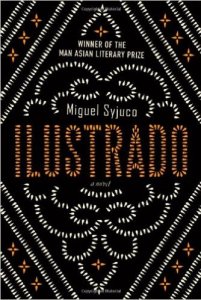Southeast Asian Literature & Fiction

Illustrado: A Novel
Miguel Syjuco

Garnering international prizes and acclaim before its publication, Ilustrado has been called “brilliantly conceived and stylishly executed . . .It is also ceaselessly entertaining, frequently raunchy, and effervescent with humor” (2008 Man Asian Literary Prize panel of judges). It begins with a body. On a clear day in winter, the battered corpse of Crispin Salvador is pulled from the Hudson River—taken from the world is the controversial lion of Philippine literature. Gone, too, is the only manuscript of his final book, a work meant to rescue him from obscurity by exposing the crimes of the Filipino ruling families. Miguel, his student and only remaining friend, sets out for Manila to investigate.
To understand the death, Miguel scours the life, piecing together Salvador’s story through his poetry, interviews, novels, polemics, and memoirs. The result is a rich and dramatic family saga of four generations, tracing 150 years of Philippine history forged under the Spanish, the Americans, and the Filipinos themselves. Finally, we are surprised to learn that this story belongs to young Miguel as much as to his lost mentor, and we are treated to an unhindered view of a society caught between reckless decay and hopeful progress. Exuberant and wise, wildly funny and deeply moving, Ilustrado explores the hidden truths that haunt every family. It is a daring and inventive debut by a new writer of astonishing talent.
The Rose of Cikembang
Tek Hoay Kwee and George A. Fowler

First published in 1927, The Rose of Cikembang is an excellent example of the so-called peranakan literature of the Netherlands East Indies, a literary form that was written in a variant of the Malay language then prevalent in the urban centers of the Indies and a forerunner of today’s Indonesian. Peranakan literature was created by writers and publishers of largely Chinese descent and flourished between 1900 and the Japanese Occupation beginning in 1942. The Rose of Cikembang was one of the most beloved novels of popular and prolific writer Kwee Tek Hoay. Highly sentimental, this story is rich in many of the often controversial themes he was famous for: interracial love and the lives of its offspring, fate and karma, and mysticism and reincarnation. The Rose of Cikembang was reprinted twice and twice made into a movie, including one of the East Indies’ first talking picture shows.
More InformationNoli Me Tangere (Touch Me Not)
Jose Rizal (Author) and Harold Augenbraum (Editor, Translator, Introduction)

In more than a century since its appearance, José Rizal’s Noli Me Tangere has become widely known as the great novel of the Philippines. A passionate love story set against the ugly political backdrop of repression, torture, and murder, “The Noli,” as it is called in the Philippines, was the first major artistic manifestation of Asian resistance to European colonialism, and Rizal became a guiding conscience—and martyr—for the revolution that would subsequently rise up in the Spanish province.
For more than seventy years, Penguin has been the leading publisher of classic literature in the English-speaking world. With more than 1,700 titles, Penguin Classics represents a global bookshelf of the best works throughout history and across genres and disciplines. Readers trust the series to provide authoritative texts enhanced by introductions and notes by distinguished scholars and contemporary authors, as well as up-to-date translations by award-winning translators.
More Information
The Sorrow of War: A Novel of North Viet Nam

Bao Ninh, a former North Vietnamese soldier, provides a strikingly honest look at how the Vietnam War forever changed his life, his country, and the people who live there. Originally published against government wishes in Vietnam because of its nonheroic, non-ideological tone, The Sorrow of War has won worldwide acclaim and become an international bestseller.
More InformationBook Program Info
List Book Archive by Date List Book Archive by Category




